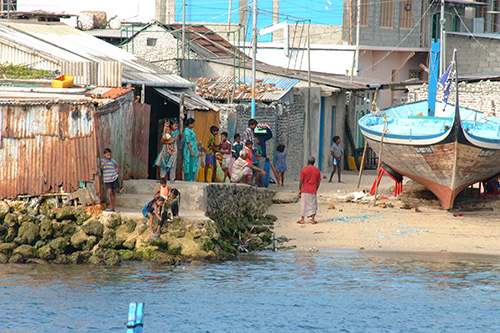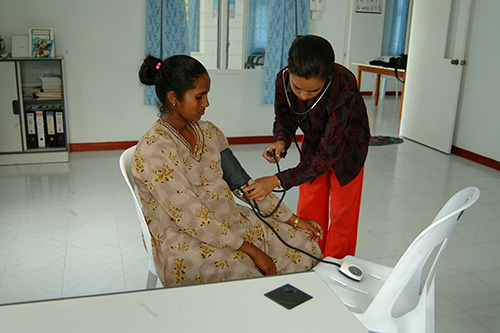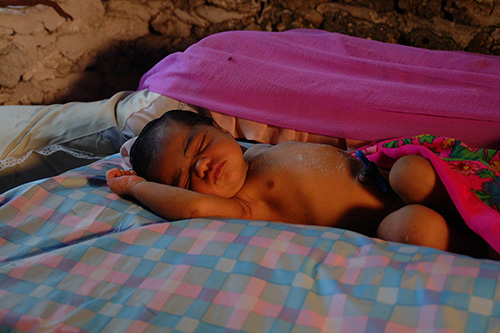News
Stunning plunge in maternal deaths recorded in Maldives
- 12 October 2016
News
MALE, Maldives – The Maldives has seen a stunning 90 per cent plunge in its maternal death rate over the last 25 years, the largest such drop in the world over this time period, according to joint United Nations estimates.
In 1990, out of every 100,000 live births, 677 women died of pregnancy-related causes. Last year, that number was 68, according to the UN’s Trends in Maternal Mortality report.
This amounts to a 9.2 per cent decline in the country’s maternal mortality ratio every year for 25 years. Globally, during the same period, the world saw only a 2.3 per cent annual decline in the maternal death ratio, according to the report.

Two decades ago, the Maldives faced enormous hurdles to delivering maternal health care. For one thing, its residents are spread across 187 islands. Only four islands have more than 5,000 inhabitants.
On top of that, the country’s health system was underdeveloped, with only a few regional hospitals able to provide emergency obstetric care.
“Those days we did not have the manpower or the facilities to address complications,” recalled Ahmed Khaleel, the country’s longest-serving reproductive health programme manager, who was based at the Department of Public Health in Male in the 1990s.
Maternal death rates were at crisis levels. To address them, the government tackled the problem from all angles.
The health ministry initiated in-depth reviews of all maternal deaths, helping health officials understand why women were dying.
Health workers received additional training and were deployed within the atolls to provide home visits. Close monitoring proved essential, particularly for women with high-risk pregnancies.
“Identifying the high-risk cases was the priority, and I would know all of the multiple high-risk expectant mothers throughout the country,” Mr. Khaleel said.
UNFPA also worked with health officials to make emergency obstetric care available to all women within two hours of travel, no matter where they were. To realize this plan, both the health system and individual health facilities were expanded.

UNFPA’s support helped establish labour rooms at health centres on 12 islands, and made specialist services available at four regional hospitals.
At the same time, family planning information and access were improved.
During home visits, community health workers informed women about the benefits of planning their pregnancies. Contraceptives save lives by preventing unintended pregnancies, which reduces the number of abortions and lowers pregnancy-related deaths and disabilities.
UNFPA increased the quantity and variety of contraceptive products available, including male and female condoms, oral contraceptives, intrauterine devices and implants.
And, critically, the government worked to educate women about the importance of reproductive health care. Dramas and songs about all aspects of reproductive health – from contraception and conception to maternal nutrition and safe delivery – were disseminated through mass media.
Today, all 20 of the country’s atolls have emergency obstetric care facilities. Antenatal care is almost universal, according to a recent health ministry report, and almost every birth takes place in a health facility.
But the work is not finished.

Health staff shortages remain a major concern. Specialist services are dependent on foreign professionals, leaving the health system vulnerable to their departure.
And in this conservative community, sexual and reproductive health services are geared toward couples, a fact that makes it difficult for young, unmarried people to access contraceptives and reproductive health information.
But young people are in need of these services. Many of the country’s current maternal deaths are the result of complications of abortion. And the contraceptive prevalence rate has fallen in recent years.
UNFPA is now turning its attention to young people, advocating for sexuality education in schools and encouraging policies that improve their access to reproductive health care.